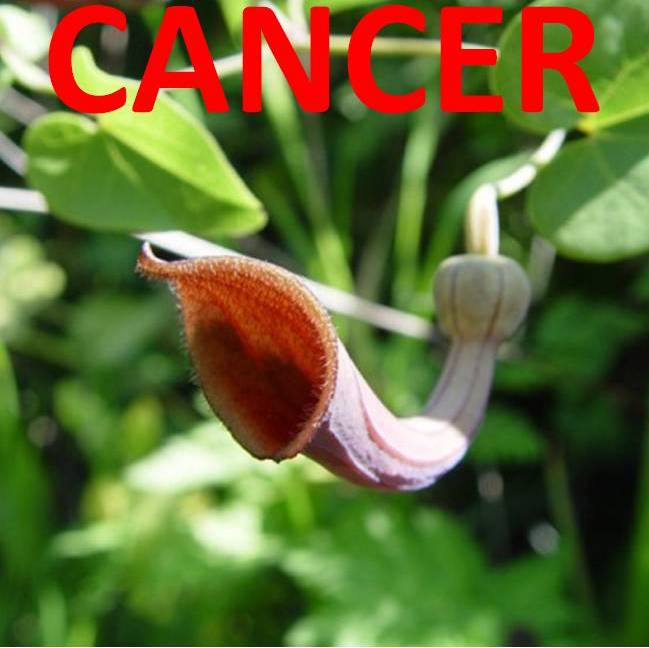
Taiwan has the highest prevalence of upper urinary tract type cancers of any country in the world, and a newly published study may reveal why. According to the study, over half of these cancers are triggered by aristolochic acid, a known carcinogen found in Aristolochia plants and used in a variety of several different types of Chinese herbal remedies.
Just how common is upper urinary tract cancer in Taiwan? While approximately 1 out of every 100,000 people are diagnosed with the disease each year in the United States, about four times as many are diagnosed each year in Taiwan.
Urinary tract cancer affects the bladder, kidneys, or ureters, which move fluid from the kidneys to the bladder, or the urethra, which expels urine from the bladder to the outside of the body.
Aristolochic Acid and Urinary Tract Cancer
During the study conducted by Arthur Grollman and colleagues at New York’s Stony Brook University, researchers analyzed DNA samples from 151 Taiwanese individuals. Exactly 82 of the subjects were men, 69 were women, and all had been diagnosed with upper urinary tract cancer. In particular, the researchers were looking for a genetic mutation that’s believed to be exclusively caused by aristolochic acid.
According to Dr. Grollman, who specializes in pharmacological sciences, the genetic mutation was found in about 55% of the subjects. Approximately 70% of these subjects also had measurable levels of aristolochic acid in their kidneys.
Safety and Efficacy of Herbal Remedies
The Aristolochia plant has been used for hundreds of years in the creation of Chinese herbal remedies. Between the years of 1997 and 2003, approximately 33% of the Taiwanese population used at least some herbal remedy containing aristolochic acid, according to the researchers.
While the U.S. Food and Drug Administration (FDA) has banned aristolochic acid from entering the country, other herbs may be equally harmful despite their legality, according to Grollman. That’s because all herbs used in supplements prior to 1994 are not required to undergo testing for efficacy or safety by the FDA.
Grollman believes that U.S. laws pertaining to herbal supplements should be reexamined in light of the new study. Grollman reminds readers that Aristolochia is not necessarily the only herb with terrible side effects, and that any given product is not necessarily safe just because it’s labeled “natural.”
A Brief History of the Aristolochia Plant
Medicinal use of the Aristolochia plant, also informally known as birthwort, dates back to the ancient Romans, Greeks and Egyptians. One of its earliest known uses was as a childbirth aid for women having difficulty passing the placenta.
Aristolochic acid was first recognized as dangerous in the early 1990s, when Belgian women began to develop kidney failure and urinary tract cancer after taking herbal remedies for weight loss. The compound was quickly banned in Europe, and soon after in the United States as well.
Based on these facts, the widespread use of herbal remedies with aristolochic acid in Taiwan, and the high prevalence of urinary tract cancer among the Taiwanese population, the researchers suspected they’d find a link prior to initiating the study.
Prevalence of Upper Urinary Tract Cancer in Men and Women
In countries other than Taiwan, upper urinary tract cancer is more common in men than in women. However, prevalence is equal among both sexes in Taiwan. The researchers believe that this may be due to the fact that 60% of prescriptions for Chinese herbal remedies are written to women, not men, in Taiwan.
Unfortunately, the researchers said that men and women are probably equally susceptible to the dangers of aristolochic acid. In fact, consuming a product containing aristolochic acid at any time in your life may significantly increase your risk of developing urinary tract cancer, according to the researchers.
Currently, as of now, aristolochic acid remains completely legal in the country of China, where it’s included in several different types of herbal remedies.
Urinary Tract Cancer: The Bottom Line
A recent study by Stony Brook University indicates that aristolochic acid may be responsible for the majority of upper urinary tract cancers in Taiwain.
Aristolochic acid is a compound found in the Aristolochia plant, and contained in many traditional Chinese herbal supplements. The compound is banned in Europe and the United States. Other traditional medicinal herbs may present dangerous side effects as well, according to the researchers.
The full text of the study can be found in the Proceedings of the National Academy of Sciences.













